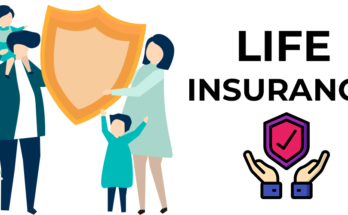When you are deep in the day-to-day of life, the thought of planning for your eventual death is probably not top of mind. In fact, said Fidelity, “roughly half of Americans don’t have a will, and even fewer have an estate plan.”
But coming up with a plan for your finances in the event of your death (or incapacitation) is an important part of protecting your assets and your legacy — and making sure that your loved ones, like your kids, are taken care of.
Technically, “many financial advisors would recommend starting an estate plan the moment you become a legal adult, and updating it every three to five years after that,” said Trust & Will.
Escape your echo chamber. Get the facts behind the news, plus analysis from multiple perspectives.
From our morning news briefing to a weekly Good News Newsletter, get the best of The Week delivered directly to your inbox.
From our morning news briefing to a weekly Good News Newsletter, get the best of The Week delivered directly to your inbox.
But for many, there are certain life events that can indicate it is time “to start (or update) your estate plan,” said Trust & Will. These triggers include:
While “most people with assets or a family should execute a will,” said Fidelity, “not everyone needs an estate plan.”
A will is a “relatively simple document that sets forth your wishes regarding the distribution of property” as well as any “instructions regarding the care of minor children,” said Fidelity. An estate plan, on the other hand, “goes much further than a will,” in that “not only does it deal with the distribution of assets and legacy wishes, but it may help you and your heirs pay substantially less in taxes, fees and court costs.” Essentially, a will is one part of an estate plan.
A will can be a good place to start, but it may not end up covering all of your bases. As Kiplinger said, “the strategies used by young couples just starting their careers and families will not work for seniors with significant assets and multiple generations to consider.”
First off, said NerdWallet, you will want to make an inventory, as doing so is a “good way to get a handle on your tangible and intangible assets.” Tangible assets include things like “homes, land or other real estate,” while intangible assets are things like checking and savings accounts, retirement accounts and investments. Also make note of “any liabilities you may have outstanding,” such as a mortgage or student loans.
If you do not yet have a will, it is vital to create one. You can tackle this task on your own — “several software programs are available to assist you, as are various DIY websites,” said Investopedia — or you can hire a professional to help. If applicable, during this process, you will “name a guardian for your children — and a backup guardian, just in case,” said NerdWallet.
You will also want to look into “naming beneficiaries in certain retirement accounts, such as 401(k) plans,” as well as for “life insurance policies, certain bank accounts, and other assets,” said CNBC. Doing so will help ensure that those assets “pass according to those instructions rather than what’s in your will,” said CNBC.
Beyond these basics, an estate plan also involves a number of “important legal directives,” such as a trust, a medical care directive and a financial power of attorney, said NerdWallet. As you get deeper into establishing your estate plan, you will want to weigh these elements, as well as the estate tax laws of your state.
You might consider hiring an attorney or estate tax professional to help, particularly if “you have doubts about the process” or a particularly “large and complex estate,” said NerdWallet.
And remember: Once you have drafted your estate plan, it’s not a set-it-and-forget-it type of thing. You will want to keep reevaluating your plan periodically, particularly when you go through any of the major estate planning triggers outlined above.
A free daily email with the biggest news stories of the day – and the best features from TheWeek.com
Becca Stanek has worked as an editor and writer in the personal finance space since 2017. She previously served as a deputy editor and later a managing editor overseeing investing and savings content at LendingTree and as an editor at the financial startup SmartAsset, where she focused on retirement- and financial-adviser-related content. Before that, Becca was a staff writer at The Week, primarily contributing to Speed Reads.
Under the Radar
The bot allegedly infected more than 19 million IP addresses across the world
The Week Recommends
The sequel to a Pixar favorite, a prequel to a hit horror series and a Kevin Costner epic
The Explainer
The condition is increasingly common, but not for the reasons you might think
The Explainer
This economic indicator reflects how consumers feel about their finances and predicts whether they plan to spend money
The Explainer
Federal student loan interest rates are set to reach record heights for the 2024-25 school year
The Explainer
The cost of flights, lodging, meals and activities can really add up
The Explainer
When you spave, you spend more money under the auspices of saving
The Explainer
As a result of rising home values, Americans are increasingly facing this tax when they sell their homes
The Week is part of Future plc, an international media group and leading digital publisher. Visit our corporate site.
©
Future US, Inc. Full 7th Floor, 130 West 42nd Street,
New York,
NY 10036.

